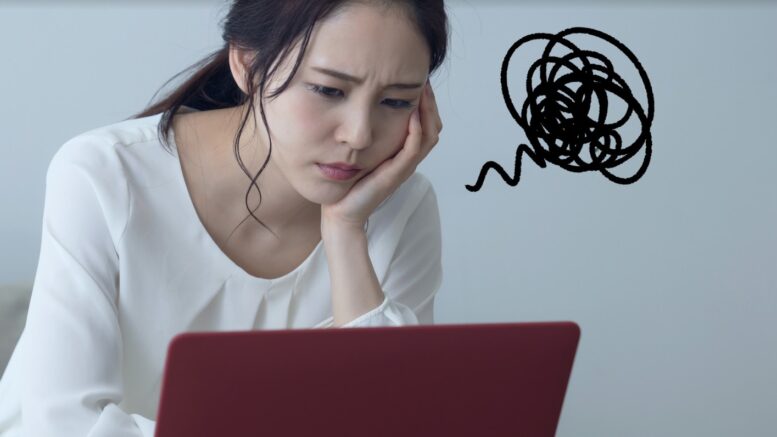Anxiety is a common mental health condition that affects millions of people worldwide. It can manifest in various forms such as generalized anxiety disorder, panic disorder, social anxiety disorder, and specific phobias. While it is normal to experience occasional anxiety, chronic and excessive worrying can significantly impact a person’s daily life and overall well-being.
Therapy
Therapy is a vital component of anxiety treatment and recovery. It provides individuals with a safe and supportive environment to explore their thoughts, feelings, and behaviors. Therapists or counselors trained in treating anxiety disorders can help clients identify the root causes of their anxiety and develop effective coping mechanisms. Additionally, therapy from mmbhcare.com can help individuals learn relaxation techniques, such as deep breathing and mindfulness, to manage their anxiety symptoms in the moment. It can also provide education and information about anxiety, helping individuals better understand their condition and reduce feelings of shame or stigma. Therapy sessions may involve various therapeutic approaches, such as cognitive-behavioral therapy (CBT), which focuses on identifying and challenging negative thought patterns that contribute to anxiety. Through CBT, individuals can learn to reframe their thoughts and develop more positive and realistic beliefs. Another approach commonly used in anxiety therapy is exposure therapy, where individuals gradually face their fears and anxieties in a controlled and supportive environment. This helps them build confidence and reduce avoidance behaviors that contribute to anxiety.
Medication
In some cases, medication may be prescribed to help manage anxiety symptoms. Antidepressants, specifically selective serotonin reuptake inhibitors (SSRIs), are commonly prescribed for anxiety disorders. SSRIs work by increasing the levels of serotonin in the brain, which can help regulate mood and reduce anxiety symptoms. In addition to SSRIs, other types of medication that may be prescribed for anxiety disorders include benzodiazepines, which are sedatives that can provide temporary relief from anxiety symptoms. However, benzodiazepines are typically prescribed for short-term use due to the potential for dependence and withdrawal symptoms. Another medication option for anxiety is buspirone, which is a non-benzodiazepine anti-anxiety medication. Buspirone works by affecting serotonin and dopamine receptors in the brain, helping to reduce anxiety symptoms without the risk of dependence.
Lifestyle Changes
In addition to therapy and medication, making certain lifestyle changes can significantly contribute to anxiety recovery. These changes can help individuals better manage their anxiety symptoms and improve their overall well-being. Some of the lifestyle changes that can be beneficial for anxiety recovery include:
- 1. Regular exercise: Engaging in physical activity on a regular basis can help reduce anxiety symptoms. Exercise releases endorphins, which are natural mood boosters, and can also help distract the mind from anxious thoughts.
- 2. Healthy diet: Eating a balanced and nutritious diet can have a positive impact on mental health. Avoiding excessive amounts of caffeine, alcohol, and processed foods can help stabilize mood and reduce anxiety.
- 3. Adequate sleep: Getting enough sleep is crucial for overall well-being and can greatly affect anxiety levels. Establishing a consistent sleep routine and practicing good sleep hygiene can promote better sleep quality.
- 4. Stress management techniques: Learning and practicing stress management techniques such as deep breathing exercises, meditation, mindfulness, and relaxation techniques can help reduce anxiety symptoms and promote a sense of calm.
- 5. Social support: Building a strong support network of friends, family, or support groups can provide a sense of belonging and reduce feelings of isolation. Talking to others about your anxiety can also help alleviate symptoms.
- 6. Time management: Prioritizing tasks and managing time effectively can help reduce stress and prevent overwhelming feelings. Breaking tasks into smaller, manageable steps can make them feel more achievable.
- 7. Relaxation techniques: Engaging in activities that promote relaxation, such as taking a bath, practicing yoga, listening to calming music, or engaging in hobbies, can help reduce anxiety and promote a sense of well-being. It is important to remember that everyone’s journey to anxiety recovery is unique, and it may take time to find the lifestyle changes that work best for you. It is advisable to consult with a healthcare professional or therapist for personalized advice and guidance.
Conclusion
Anxiety can be a debilitating condition, but with the right strategies and interventions, individuals can effectively manage and recover from it. Therapy, medication, lifestyle changes, and self-help techniques all play a crucial role in anxiety treatment and recovery. It is important for individuals experiencing anxiety to seek professional help and explore the various options available to them. With proper support and commitment to their recovery, individuals can regain control over their lives and experience a significant reduction in anxiety symptoms.
